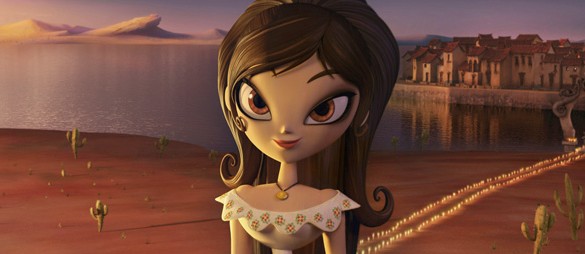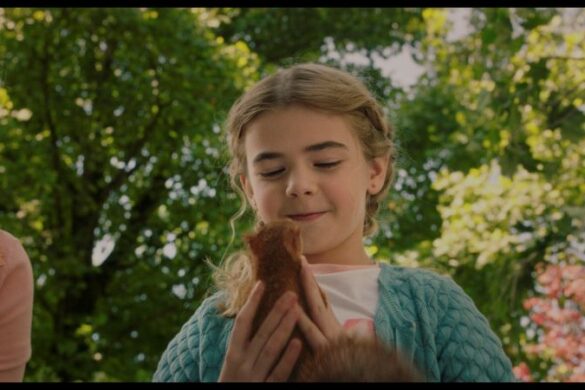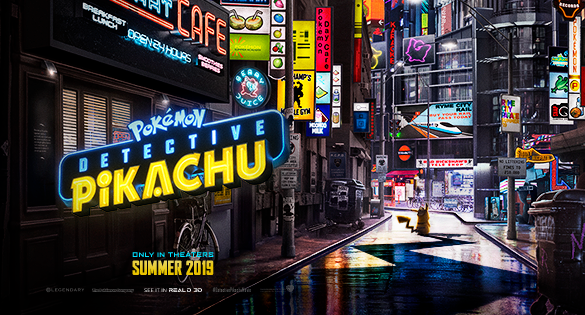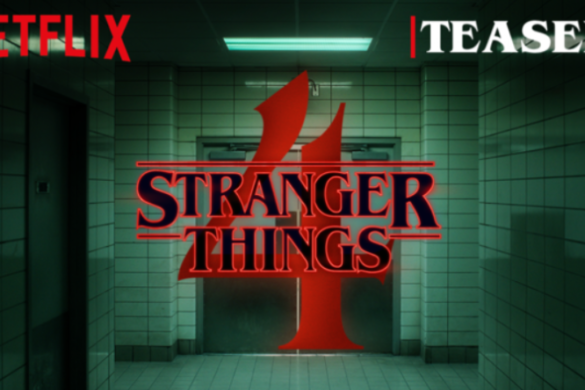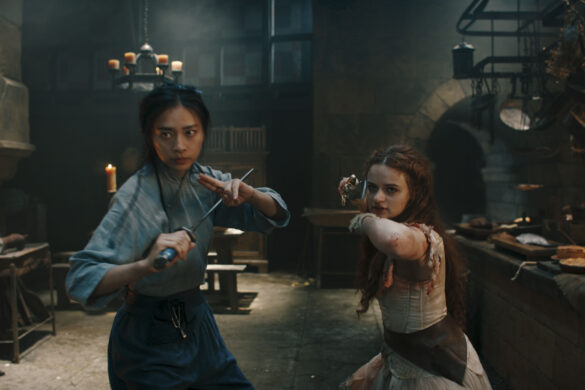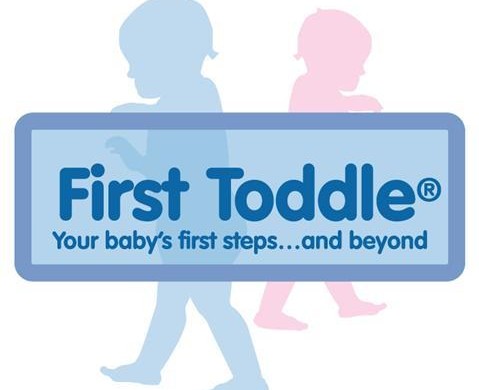“Wicked” – or “Wicked Part I” as the film is titled – opens with a tragic jubilating “No One Mourns the Wicked.” It’s a dark song that encapsulates the spirit of the original stage musical and director Jon M. Chu’s vision for the cinematic adaptation. It may be a spoiler for “The Wizard of Oz,” but it sets the stage for what’s to come – especially those who have been waiting over 20 years to see “Wicked” come to life on the big screen.
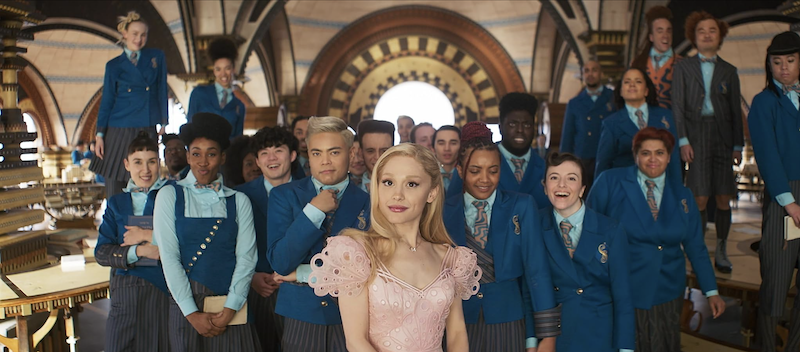
Ozians sing and dance over the death of the villain, who has caused nothing but pain and suffering but is completely oblivious to the truth. So when their savior, Glinda (Ariana Grande), The Good Witch, arrives, she asks the people, “Isn’t it nice to know that good will conquer evil?” But the tone in that question has audiences wondering what she is hiding. Though the Ozians are overcome with glee, Glinda seems oddly protective as she asks, “Are people born wicked, or do they have wickedness thrust upon them?” And it isn’t until one Ozian asks Glinda if she knew the Wicked Witch that the pink witch starts to deflect. The film takes us to the beginning where audiences discover what may have made the Wicked Witch of the West gain such noriarty.
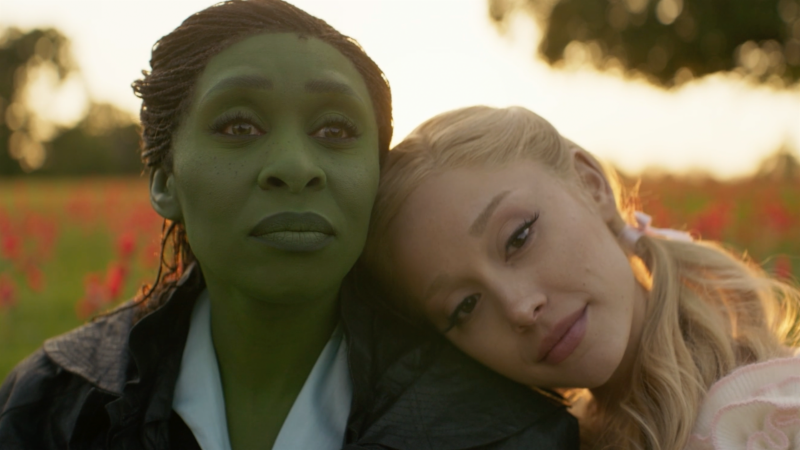
Though “Wicked” is told from the perspectives of the two witches before Dorthy arrives, the film tells the story of Elphaba (Cynthia Erivo), Elphaba, a young woman misunderstood because of her unusual green skin who has yet to discover her true power.
By having Glinda pose the questions to the Ozians and the audience about wickedness, Chu’s “Wicked” explores the nature of evil and how those who claim to reject it actually embrace it, while those who are cast as evil are the ones who do the most good.
After years of rejection from her father and being deemed an outcast by those who don’t have green skin, Elphaba acts as a protector to her paraplegic younger sister, Nessa (Marissa Bode). Though Elphaba knows Nessa better than anyone, their father’s overprotection of the youngest makes Nessa slightly spoiled and naive. Only when they arrive at the prestigious and magical – if not very uptight and cliquey – Shiv University will the two meet their destinies, as tragic as they may be.
Though Elphaba has never asked to be the center of attention, she often finds herself at it. Contrast that to Glinda, an attention-starved and vapid young woman whose privilege grants her a private dorm room. Morrible doesn’t believe Glinda has any talent. Still, if she wants Elphaba to stay at the university, she forces the two to room together. The strange set of circumstances forges an unlikely friendship between Elphaba and Glinda.
Elphaba finds herself enrolled after displaying her magical abilities in front of Madame Morrible (Michelle Yeoh), the Headmistress of Shiz University. Morrible promises to tutor Elphaba privately and that if she can harness her magical talents, she will be able to meet the great and powerful wizard. The events lead us to Elphaba’s first solo, “The Wizard and I,” where she sings about being seen for who she is and the idea that she will be able to practice magic alongside the wizard. Watching Eviro dance her way through the courtyard and hallways of Shiv seems fitting as she finally feels seen and can be accepted for who she is before finally reaching a powerful crescendo in an open field where there are no limitations and she can go beyond her full potential.
However, Morrible’s room assignment is anything but comfortable for the two. They disdain each other and constantly clash, with the conflict culminating in the “What is this Feeling?” duet. Eventually, Elphaba’s journey to becoming the Wicked Witch of the West is actualized during a history class taught by the goat-talking Doctor Dillamond (Peter Dinklage), where she learns more about the discrimination animals have experienced in the past and how they have been reduced to be nothing more than beasts.
As Elphaba contemplates the stunning revelation, she runs into the roguish Prince Fiyero, a young man who puts on a shallow and vapid front to conceal his complexity. Whenever the two aren’t sharing the same frame privately, Fiyero sings and dances about how life would be so much easier if they were “Dancing Through Life” instead of putting their head in the book and studying. The man gets everyone in the library to follow his lead, and they seemingly defy gravity with the greatest of ease as they walk on spinning bookcases. Even the uptight librarian can’t help but be swooned by the charming prince. Such a lifestyle and song attract the attention of Glinda, who believes that they are to be wed even though he hasn’t formally asked for her hand in marriage.
To say that this is simply a big-screen adaptation of music and lyrics by Stephen Schwartz and a book by Winnie Holzman of the same name would be a disservice. The film itself is a grand spectacle meant to be seen on the biggest screen possible, where audiences are taken to worlds where emotions and magic coexist.
Of course, Elphaba couldn’t be least interested in what Fieryo is pitching. Glinda will do anything to be in the prince’s orbit, including getting Boq Woodsman, a Munchkin in love with Glinda, off her back by setting him up with Nessa. Boq believes this faux relationship will help him get closer to Glinda, while Nessa believes it is true love. Nessa shares what happened to Elphaba, who returns the favor by asking Morrible to admit Glinda into her class.
This one act of kindness forges an unlikely bond between the selfless Elphaba and the self-centered Glinda. That friendship is better expressed in Glinda’s powerful and bubbly ‘Popular’ solo. It’s fun and poppy as the singer prances around the pink-glazed dorm room about how she will help her new friend be chic by fixing her hair and showing her how to flirt. Though her intentions are pure, it’s also a bit silly considering how it is sung by someone as self-absorbed as Glinda.
Chu’s vision for “Wicked” is nothing short of magical. The complexities of capturing the heart and soul of such a powerful sound only adds to the pressure of making it perfect. Rather than rely on the performance of the song alone, Chu lets the moments feel earned by having audiences follow Elphaba on her journey of self-discovery. We see what her childhood was like, the friendships that she’s made, the shocking truths she uncovered, and what happens when all of that falls apart from one act of betrayal.
By splitting Wicked into two parts, Chu can explore the story with greater depth and nuance. Characters who have otherwise had limited stage time now have more encompassing arcs because they have more screen time. Nessa’s arc for example, plays a role in how we see Elphaba as a compassionate person who is more empathic than self-centered. Of course, seeing how Elphaba is protective of Nessa only makes the end of their respective stories more tragic.
Even with the other subplots, “Wicked” has plenty of heart and a powerful voice. As the story continues to move, it has echoes of other films set in places of education. These characters aren’t so much getting lessons in casting spells or making magic but learning about goodness and wickedness, popularity versus belonging, knowledge and truth, and mob mentality. With his love of all things musicals and the Wizard of Oz, Chu uses powerful performances, practical sets, and music to reflect those dichotomies and character virtues. And even though there are a few lulls and it spends a little too much time on a few moments, everything about “Wicked” is a splendid watch.
Chu knows how to make the entire cast dazzle, and in return, the cast gives it their all, making the director’s vision sparkle. From the Shiv University campus, its classrooms, libraries, and even grand castle canals to the nightclub. Every set piece shimmers, even if the scene’s energy can’t quite match it because it feels familiar. The world comes to life because the costumes and production design pop off the screen. It’s almost as if you can reach out and touch this world.
While the dialogue and lyrics make the heart and humor apparent, the dynamic choreography adds beautiful depth to an emotionally complex story. Chu knows how to make sure everyone, cast, crew, and audience are having a good time. The director also knows how to tug at the heart strings. While there’s plenty of fun to be had during swooning musical numbers like “Dancing Through Life” and “Popular,” the quieter scenes like magical party where Glinda accepts Elphaba and sees her for who she is through a dance that may seem silly on the surface but speaks volumes.
Individually, Grande is absolutely fantastic as Glinda, as she provides more scene-stealing performances than I can count. Erivo’s vocals are magnetic as you can’t help but give your undivided attention to her – especially when she sings “Defying Gravity.” Together, they have quiet the chemistry and bounce off each other with disdain at first and then playful banter.
For all of its flaws, like it having a lengthy runtime or unnecessary subplots, “Wicked” has plenty to offer and leaves us on a thrilling cliffhanger. The kind that makes us excited for us to see what they will do in “Wicked Part 2.”
9/10
Wicked is in theaters November 22, 2024
Photos by Universal Pictures – © Universal Studios. All Rights Reserved.


